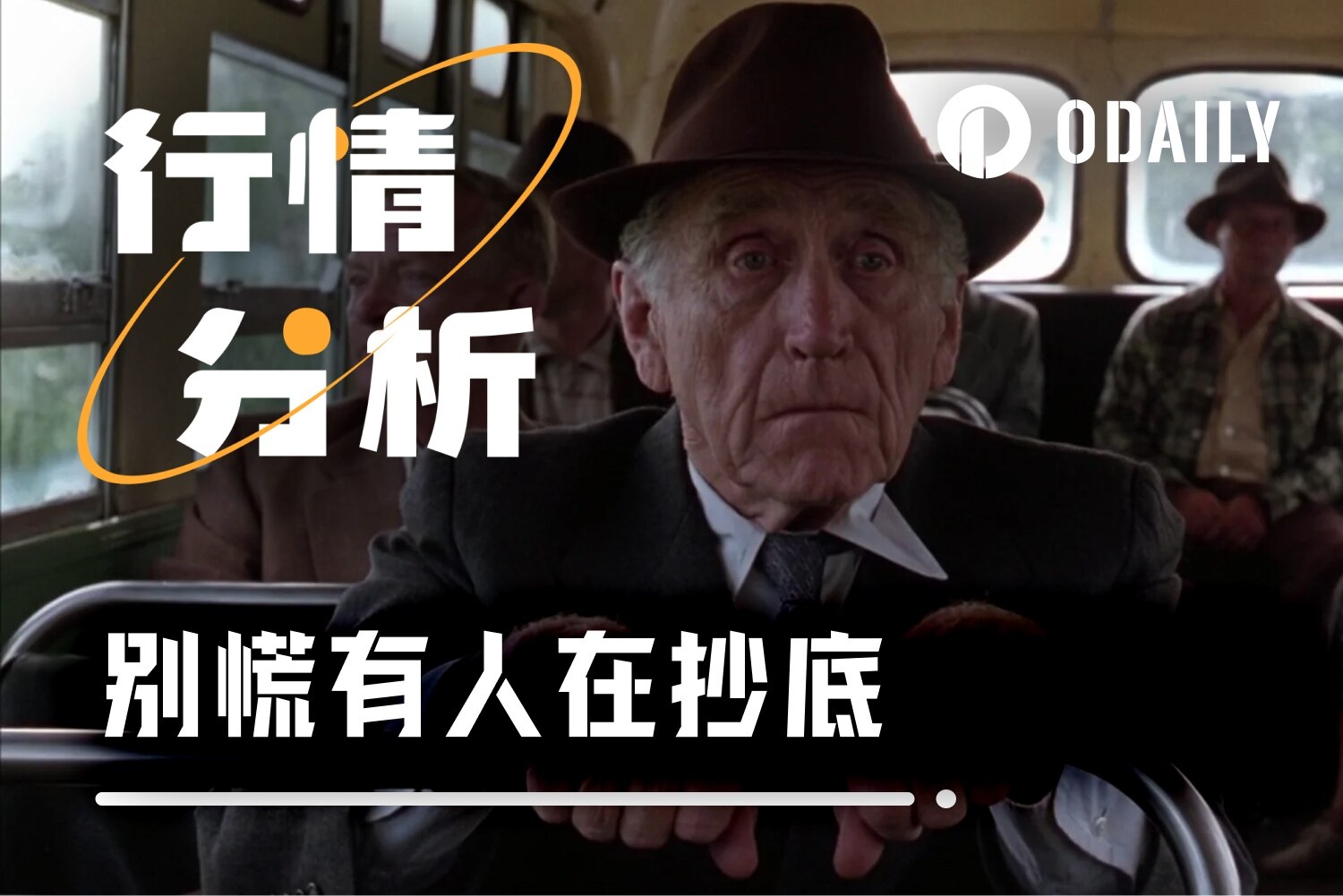探秘非洲加密市场:钟情于稳定币,在缺失中渴望成功
原文作者:PATRICK MCCORRY
原文编译:深潮 TechFlow
我参加了由 Borderless Africa 组织的一次旅行,与 Yoseph Ayele、Songyi Lee、Jeff Coleman、Ye Zhang、Kartik Talwar 和 Jacob Willemsma 一起组成了一个小团队。
这次旅行在肯尼亚和尼日利亚之间进行,历时约 9 天。
在每个国家,我们进行了以下活动:
问答和座谈会;
当地人主持的小圈子讨论;
开发者教育研讨会。
除了这些活动,我们还有机会与创始人和知名贡献者见面。
本文代表我个人的观点和从这些对话中获得的见解。重点包括:
USDT 和币安 P2P 广受欢迎
渴望凭借能力而非地理位置赚钱
未来将会怎样?
免责声明:每次活动都邀请当地人了解以太坊和第二层协议。参加这些活动的观众很可能对加密货币有浓厚的兴趣。尽管它可能不广泛代表当今的人口,但随着加密货币的普及不断扩大,它可能在未来成为主流。
USDT 和币安 P2P 广受欢迎
我在每次活动中都问了同样一组问题:
谁用加密货币支付工资?
谁用本地货币支付工资?
谁更喜欢以比特币/以太币的形式支付?
谁更喜欢稳定币?
谁正在积极使用币安的 P2P 市场?
在所有的活动中,几乎所有参与者的回答都相当一致:
他们曾经通过加密货币收到过工资。
他们更喜欢以稳定币的形式支付,尤其是 USDT。
他们使用币安的 P2P 市场将稳定币兑换成本地货币(反之亦然)。
对于持有比特币或以太坊等本地加密资产并没有太大兴趣。此外,参与者更喜欢像波场或币安智能链这样的网络进行交易。
原因是:几乎没有费用,并且确认时间“迅速”。
币安很受欢迎
虽然像 onboard 这样的竞争对手正在崛起,但几乎所有参与者仍然依赖币安作为他们首选的交易平台。
有人向我解释说,币安在 2018 年左右进入非洲,并成立了币安实验室。当时存在潜在的兴趣,但没有扩张的初衷。随着时间的推移,币安意识到非洲人想要接触稳定币,于是非洲成为了该公司的一个重要市场。我看到一些当地人穿着币安的衣服,但他们从未在该公司工作过。
对我来说,USDT 的崛起似乎是巧合的。在 2018 年,稳定币市场没有竞争对手,非洲似乎跟随当时更广泛的市场趋势,USDT 超过比特币成为最流动和交易量最大的资产。我希望我当时多问一些关于为什么更喜欢 USDT 而不是 USDC 的问题。
加密货币代表了便捷获取稳定币的方式
稳定币的崛起是不可低估的。从非洲人的角度来看,稳定币代表了最重要的创新。
它方便地让非洲人接触到美元:
非洲人可以绕过本地黑市。
非洲人不再需要应对与黑市相关的现实危险。
非洲人可以按照更广泛的市场汇率进行兑换。
更重要的是,不再需要把美元藏在床垫下,一切都是数字化的。当然,实现稳定币的普及所需的工作并不容易。
有些读者可能会想:“嗯,如果我可以将美元表示为链上的资产,那么问题就解决了!”.
这是解决问题的第一步。更广泛的问题是创建一个在线市场,可以促进稳定币与本地货币之间的流动市场。这个市场必须能够以较大规模进行兑换,并且价格滑点要尽量小。
为什么这是真正的挑战?非洲国家有大约 42 种货币。我们需要培养一个流动市场,可以为所有本地货币与稳定币之间的兑换提供便利。这需要许多当地参与者的共同努力才能实现。
值得庆幸的是,加密货币系统在允许参与者共同合作并为资产提供流动性方面非常出色,当真正需要时,可以提供流动性。
到目前为止,这在肯尼亚和尼日利亚运作良好。我没有数据来证实这对非洲所有 42 种货币都适用。
为什么选择稳定币?而不是加密资产呢?
对许多人来说,可能会感到惊讶,但非洲国家的本地货币相对于美元的贬值速度非常快。一些货币,比如津巴布韦的货币,由于恶性通货膨胀而失败。
例如,自 2008 年以来:
尼日利亚奈拉相对于美元贬值了 7/8 。
肯尼亚先令相对于美元贬值了 50% 。
肯尼亚先令的贬值是非常显著的,因为在 2008 年到 2023 年的同一时期,肯尼亚的国内生产总值增长了两倍。尽管经济增长,但该货币继续贬值。人们对经济的信心增强,但对本地货币的信心并没有增加。
毋庸置疑,肯尼亚和尼日利亚有大片人口仍然生活在绝对贫困中。
对于西方人,尤其是英国人来说,贫困的概念是指住在社会保障(福利)付款的公寓里。家庭确实难以维持温饱,但他们有一个有屋顶的住所,并能够获得医疗保健。如果考虑无家可归的人,英国有大约 27.1 万人,占总人口的 0.4% (约 6700 万人)。
据估计,内罗毕有 60% 的人口生活在贫民窟中。此外,世界银行估计尼日利亚和肯尼亚的人口中有约 50% 生活在贫民窟中。
在贫民窟中,整个家庭可能住在一个房间(“工作室”)里。他们的家门外是一个连接他们与主干道的狭小走廊。正如我们所经历的,污水通过这些狭小的走廊流过,像是一道充满障碍的赛道。许多人每天生活在不到 1 美元的收入中,几乎没有社会福利。
这就是为什么以下陈述对非洲人来说,尤其是那些生活在贫民窟中的人,是与现实脱节的。
“真正的胜利在于帮助人们理解为什么比特币是最好的长期储蓄资产。”
我不喜欢批评上述评论,但它与现实世界的情况和当地人面临的现实脱节。
我相信当地人很愿意有长期的储蓄目标,但他们迫切需要解决眼前的开支。例如,如果他们因为任何原因无法支付账单,房东可能会支付 10 美元给一群年轻人,让他们威胁租户支付房租。
令人惊讶的是,贫民窟仍然有房东存在。
我不相信稳定币能帮助生活在贫民窟中的人。解决办法是为当地人创造更好的市场条件,让他们能够积累财富,建设更好的基础设施,摆脱贫民窟。我可以理解个体可能会寻求在线工作,并通过加密货币系统收到支付,但对于许多生活在这些条件下的人来说,这并不是一个现成的解决方案。
换句话说,加密货币系统对尼日利亚或肯尼亚约 50% 的人口来说,在例外情况之外还不具备相关性。
使用稳定币的非洲人并不生活在贫民窟中。我想象他们已经实现了某种形式的财务稳定,并且能够支付近期的开支。
随着时间的推移,美元正在失去其消费能力 我们应该将所有储蓄保留在原生加密资产中,这一加密货币 Meme 对他们来说意义不大,因为这是一个陌生的概念。
非洲的情况恰恰相反。美元的购买力只相对于他们自己的本地货币而言上升。相比持有本国的加密资产,持有美元是一种更安全的选择。
对非洲人来说,美元非常稳定,这就是为什么稳定币在他们中间找到了产品市场适应性的原因。
参加会议的人口统计包括:
社区领导者,
软件开发人员,
初创企业创始人。
在歧视和不信任的背景下渴望成功
以下问题和答案源自尼日利亚的聚会。
谁对像 PayPal 这样的在线支付提供商有疑问?
观众中的每个人都举起手,相互笑了起来。
在非洲(尤其是尼日利亚),由于 IP 地址被在线服务提供商视为可疑,经常会被锁定在服务之外。我们中的一些人也被锁定在了自己的账户之外。
最终结果是:非洲人被全球金融科技公司提供的服务所排除,而这些服务在西方被我们视为理所当然。
谁对 KYC 有疑问?
我们被告知大约 70% 的尼日利亚人没有护照。
尼日利亚政府制定了一个名为国家身份号码(NIN)的方案,用于身份识别和 KYC 目的,但它卷入了问题和延迟之中。
另一方面,尼日利亚央行运行着一个名为银行验证号码(BVN)的独立身份验证过程。它在所有银行服务中充当用户的唯一标识符。只有尼日利亚人口的 25% (5700 万人)注册了该号码。
在尼日利亚,身份仍然是一个难题。这将影响公司在向尼日利亚人发送资金之前满足合规要求的能力。无论是加密货币还是其他方式,这个身份问题需要在符合监管框架的前提下得到解决。
谁曾因不信任你而错失机会?
这次没有人笑了。每个人都举起手,这令人发省。
如果读者只能得到一个观点,我相信这就是为什么区块链技术,尤其是作为技术堆栈的 Rollup 对我们在非洲的同事如此重要的原因。它减少了用户和运营商之间的权力动态,使那些希望进行交易但彼此怀有互相不信任的各方能够以安全的方式进行交易。
换句话说,它允许用户:
将资金锁定在运营商的服务中,
与服务进行交互,
最终从服务中提取资金,而不信任服务运营商。
我们能够定义、衡量和减少金融交互中的信任,这就是加密领域如此特殊的地方。我一直称之为信任工程领域。
我希望有一天技术堆栈能够为我们的同事带来规模化的好处。
让我们在他们的平台上进行交易,为他们的服务支付费用,最重要的是,无需担心他们是谁或他们住在哪里。
关于尼日利亚人,我们应该告诉西方人的一件事是什么?
一位参与者和其他人的一些评论对这个问题发表了深入的演讲。我总结了以下关键观点:
"尼日利亚人特别渴望机会。他们受到激励驱动。设计正确的激励计划,尼日利亚人就会加入。尼日利亚人从互联网上学到了他们所知道的一切。给他们一部诺基亚 3310 手机,他们会将其用作去某个地方的工具。
他们想要逃离当地环境,在线工作并加入全球劳动力。他们将区块链视为伟大的平等器。使他们能够以能力而非地点来获得回报。
在非洲,项目成功所需的资金较少。在美国/欧洲每花费 1 美元,你会得到 1 分,但在非洲你会得到 1000 分。”
以及:
“如果项目中有尼日利亚人,那么就有钱可赚。如果没有尼日利亚人,要小心。” - 肯尼亚当地人
我笑了笑,但这确实展示了他们对追求成功的渴望。
Web3 Bridge
请花一点时间想象一下:
为了学习 Web3,你离开了家人和朋友长达 16 周,行程数千公里,与其他 40 人(上下铺)住在一起。
希望能有一个改变生活的机会。
这个机会是在线工作,根据能力获得收入,并且不会因为你的地理位置而受到歧视。
这就是 Web3 Bridge。
Web3 Bridge 是一个自 2019 年以来免费运行的教育项目。
该项目吸引了 Web2 开发人员和有志于成为程序员的人,他们希望学习如何开始进入 Web3 行业。
我们遇到了一位女士,她为了参加这个项目而将丈夫和三个孩子留在家里。我想象着在那个房间里还有许多其他人面临着类似的困境,长时间离开所爱的人,这种勇气是不容小觑的。
课程和涵盖的主题也令人印象深刻。它从基本概念开始,比如什么是区块链,到实现你的第一个 Solidity(或 Cairo)智能合约,再到学习实现 Web3 应用程序的全栈技术。
再次强调,整个项目都是免费参加的,无论是亲自参加还是在线参加。我们了解到 Web3 Bridge 的持续存在依赖于创始人的拨款和个人投资(时间和金钱)。
目前,物理设施包括几栋房子,但创始人 Ayo 告诉我们他的梦想。他想购买附近的土地,并开设一个更大的校园。有了更大的物理空间,他可以增加学员规模,一次教授数百名开发人员。
我真诚希望他的愿景能够实现,加密社区应该考虑如何支持 Web3 Bridge。
未来会怎样?
在访问肯尼亚和尼日利亚的九天里,我获得了一些宝贵的见解,这些见解使我对未来有了一些重要的结论——对于他们的劳动力、加密货币可能发挥的作用以及我们(西方)是否能够支持他们的增长。
非洲在取得成功方面具有独特的优势
在我看来:
非洲人与欧洲人共享同一时区,
他们能流利地说欧洲语言,尤其是英语和法语,
他们怀有强烈的成功欲望,渴望创造财富。
非洲人在网络竞争中处于有利地位。
在数字领域中,如果需要一个特定时区的工作者,并且他们能够用相同的语言进行沟通,那么工作者是否在欧洲或非洲可能并不重要。
对我来说,帮助非洲人成功的总体目标是:
提供更好的加密货币基础设施,为雇佣和支付非洲人提供可靠的途径,
减少在线社区区分非洲人和欧洲人的关键差异,
使非洲开发者能够利用加密货币作为软件堆栈,并消除信任服务运营商的角色。
长期来看:非洲人和欧洲人这两个社群在数字领域中应该变得无法区分。
只有这样,非洲人才能够主要依靠自身的能力而不是地理位置来获得收入。
非洲人了解加密货币
感谢互联网和在线社区,非洲人并不与以太坊社区隔离。我们遇到了以下团队和个人:
正在建设 Arbitrum 项目的团队,
参加了 ETHGlobal 黑客马拉松并赢得了奖励,
学习如何在 StarkNet 上实施 Cairo 智能合约。
了解 Optimism 的回顾性资助,
渴望学习零知识证明。
非洲人不需要我们西方国家去拜访他们并宣扬为什么他们应该关心以太坊或更广泛的加密货币生态系统。
他们拥有一个庞大的 NFT 社区。
非洲人已经对加密货币产生了兴趣,而且热衷的人数还在稳步增长。
我们如何帮助非洲?
在理解如何使用加密货币方面,非洲人并不需要我们的帮助。如果有什么的话,我们需要他们的帮助来展示使用案例。
正如本文所概述的,非洲人如何方便地使用加密货币来获取美元有助于验证我们正在构建的所有技术。这提供了无可争议的证据,证明加密货币具有产品市场适应性,并且有许多人依赖它。
另一方面,我们需要更好地了解非洲人在参与在线经济和启动自己的加密货币项目之前面临的挑战。一些挑战包括:
缺乏政府支持。
肯尼亚没有加密货币法,但政府刚刚没收了 WorldCoin 的硬件,称其未能披露真实意图。尼日利亚禁止银行参与,但个人可以使用。
几乎没有风险投资存在。
天使投资是可行的,但非常罕见。身份问题使法律合规变得困难,并可能阻碍筹集资金。
没有时间去创造。
渴望成功使非洲人非常专注于构建下一个产品。他们没有闲暇时间简单地为了好玩而摆弄技术,这可能影响他们提出创新的新想法的能力。
全球看法。
西方人对非洲人的能力和现实需求存在误解,非洲人可以展示他们的能力和价值,但需要我们所有人来放大它。
非洲的拨款计划
一次又一次提出的解决方案是需要一个专注于非洲的拨款计划。关于拨款计划,我想提出几点意见,这些反馈对于任何计划都是相关的(不仅仅是专注于非洲的计划):
拨款应该给予那些需要推动进展的项目和个人,
拨款应该给予那些可能从摆弄时间中受益并更好地理解研究导向的想法的个人,
拨款可以为风险投资公司降低前种子阶段的风险,
拨款不应被视为长期资金来源,因为很容易继续资助本应失败的项目,
只有在拨款受助方有明确无误的工作证明时才应发放拨款,
拨款可以用于培育环境,连接开发者并发展一个可以相互分享知识的社区。
任何旨在在非洲或任何地理位置工作的拨款计划都需要当地领导者来运营。拨款经理可以获得报酬来审查和授权拨款。这完全可以成为一个全职角色。
大多数人,即使是杰出的当地领导者,也没有运营或参与拨款计划的经验。像任何系统一样,最好从小规模开始,并随着时间的推移逐步建设。最好不要将非常庞大的资金库交给全新的拨款计划。拨款经理应该有时间赢得他们管理资金的声誉,并展示拨款的影响。
拨款并不能解决当地问题,尤其是在非洲。资金是有限的,很容易耗尽。在资金使用上要谨慎。拨款应保留给那些最有前途的团体和个人,以推动他们的项目。这是“免费”的钱,但它不应该被广泛提供。
对我来说,Uniswap 是最成功的案例之一。创始人 Hayden 获得了以太坊基金会提供的 5 万美元拨款,用于支付审计费用。这足够支付审计费用,推动进展,并成就了如今的技术巨头 Uniswap。
推动进展并不需要大量资金。少即是多。
最后,有两个问题阻碍了任何拨款计划的成功。
如果非洲人无法遵守 KYC/AML 规则,可能无法向他们提供拨款。
需要出现一个本地的风险投资网络,以后可以为任何成功案例提供资金。
这两个问题都是结构性和基础设施问题,超出了加密货币的范畴。尤其是风险投资网络,你需要愿意投资并帮助新一批创始人建立大型可持续公司的前创始人。
现场教育
非洲所缺少的一件事,在西方却非常丰富,那就是现场教育。
在西方,有大量的研讨会、夏季和冬季学校,可以参加并学习推动加密货币的核心技术。更重要的是,许多教育活动是免费的。
遗憾的是,许多非洲人在参加与加密货币相关的活动时面临着限制。
许多非洲人缺乏护照,即使他们拥有护照,签证的需求和旅行费用的潜在负担也带来了相当大的挑战。
他们无法亲自来到我们这里。
作为一个实验,Ye Zhang 和我在肯尼亚和尼日利亚都举办了开发者研讨会。
令我们惊讶的是,许多软件开发人员出席了,而且人数之多也出乎意料。他们提出了许多很好的技术问题。非洲有大量技术娴熟的开发人员希望学习以太坊的核心基础设施,以及像零知识证明这样的新颖主题。
迄今为止,他们完全依靠互联网来学习,但与世界专家面对面交流是最好的。这不仅从学习的角度来看,还能获得追求一个主题的灵感,因为专家们往往热爱自己的主题,这种智力的热爱是具有感染力的。
这使我想到下一步:我们并不真正需要一个向非洲人推销和营销新的 Web3 项目的会议。人们渴望分享知识和学习。
我们对非洲人最大的贡献是组织和开展一个现场教育项目。就像一个夏季学校——邀请专家来教授技术主题。
最后的结论
以上文章有几个要点:
加密货币支付已经成为一种方便的方法,用于获取美元。
由于早期扩张和促进点对点市场,币安在非洲很受欢迎。
非洲人希望根据能力而非地理位置来获得收入,并且他们有毅力去追求。
长期目标应该是减少欧洲人和非洲人在数字领域的差异。
非洲人面临许多挑战,包括缺乏监管支持、无法旅行、难以遵守 KYC/AML 规定、几乎没有风险投资网络,以及没有时间尝试新想法。
更重要的是,几乎所有尼日利亚人都举手承认,他们失去了机会,因为人们不信任他们。
Web3 Bridge 的教育计划正在做着重要的工作,下一步是西方国家亲自协助开展夏季学校。
我们访问的一个影响是帮助社区建立联系。许多参与者彼此不认识,尤其是开发人员。听起来,一些当地社区领导人将尝试继续组织更多活动。随着我们的访问增多,希望能帮助当地领导人建立更大的社区。
还有两个最后的话题我想讨论一下。
非洲人热爱生活。虽然我们只去过尼日利亚和肯尼亚,但我们还遇到了来自乌干达、加纳和其他国家的非洲人。他们愉快地开玩笑,比如尼日利亚人都很戏剧化,或者他们需要放松时就去加纳。
当地人非常乐意教我一些有趣的词语,比如 Mubaba、Alagba、m'soupa,这些都是对男性和女性的称赞。我抓住每一个机会说这些词语,大多数时候他们都笑了,尤其是肯尼亚人。他们甚至告诉我,东非人有圆形的额头,而西非人的额头是扁平的。
作为一名程序员,很容易专注于更广泛的系统,并试图评估如何修复以造福所有人。然而,我们绝不能忘记这个系统的核心是人。花时间了解他们的习俗、幽默,并充分欣赏他们为了能够与我们其他人进入同一个房间而放弃的一切,这总是值得的。
非洲是什么?
非洲的一个引人注目的方面是其巨大的文化丰富性以及它如何影响非洲人对非洲大陆的看法。
在西非,存在一种类似申根协议,允许在几个国家之间免签旅行。然而,从东非到西非(反之亦然)旅行并不常见,也很困难。这需要签证,经济成本高,而且需要时间。例如,从拉各斯到内罗毕的飞行时间约为 5 小时,往返机票可能超过 600 美元。
我注意到东非和西非相互认可对方是非洲身份的重要组成部分。另一方面,他们不认为南非或北非符合同样的标准属于“非洲”。南非被认为更具欧洲风格,而北非则更具伊斯兰风格。
这种情绪体现在这样一个事实上,即至少我问过的人中没有人去过阿尔及利亚,也没有表达任何去那里的意愿。这很有趣,因为我的继父在阿尔及利亚长大,他非常认为自己是非洲人。我对此没有很好的见解。我想象这与文化差异和非洲的殖民历史有关。



